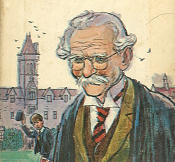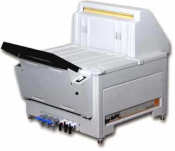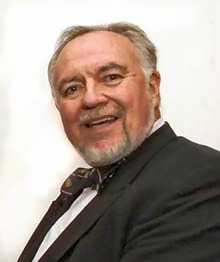 Professor John Roth, an electrical engineering professor at the University of Tennessee, has been indicted for violations of the Arms Export Control Act. The indictment alleges, among other things, that Roth disclosed to a Chinese graduate student controlled technical information on a drone aircraft being developed for the Air Force. Additional charges relate to Professor Roth traveling to China with controlled technical data. There is no charge that this data was disclosed to anyone in China, and the charge apparently arises from the fact that the data was on the laptop computer which he took with him to China.
Professor John Roth, an electrical engineering professor at the University of Tennessee, has been indicted for violations of the Arms Export Control Act. The indictment alleges, among other things, that Roth disclosed to a Chinese graduate student controlled technical information on a drone aircraft being developed for the Air Force. Additional charges relate to Professor Roth traveling to China with controlled technical data. There is no charge that this data was disclosed to anyone in China, and the charge apparently arises from the fact that the data was on the laptop computer which he took with him to China.
Violations of the Arms Export Control Act must be premised on willful conduct and specific intent, i.e., a “voluntary, intentional violation of a known legal duty.” United States v. Adames, 878 F.2d 1374 (11th Cir. 1989). The indictment alleges that Professor Roth’s exports were willful, but it is, shall we say, sketchy on alleging, much less demonstrating, that Professor Roth knew that his actions were unlawful.
The charges relating to his taking his laptop computer to the PRC seem particularly vulnerable in this regard. There is no suggestion that Professor Roth disclosed this information while in China and thus it is perfectly reasonable to suppose that he had no idea that he needed a license from the Directorate of Defense Trade Controls (“DDTC”) to take his computer with him on his trip to China. (He was in China to teach a course at a Chinese university).
The deemed export charges — i.e. disclosure of the technical data in the United States to a PRC national — also seem to lack the requisite criminal intent. The concept of a “deemed” export is not something naturally intuited by everyone. Many people don’t realize that it might be criminal to disclose non-classified data in the United States to a foreign national. The indictment attempts to allege, unsuccessfully I think, specific intent by Professor Roth by claiming (a) that Roth sent an email in which discussed U.S. nationals as potential students who might assist the project and (b) that there were references to export controls in a contract reviewed by Roth and relating to the drone project. None of this makes a convincing case that Roth knew that having a Chinese student work on the drone project was a federal crime.
There is, I think, a big missing piece to the puzzle here. Nothing in the indictment provides any motive or reason that Professor Roth would intentionally commit a federal crime. There is no reason to think that he had any financial motivation here. Nor is this a case where a motive might be inferred because of any ethnic loyalty of the defendant to the country of his birth. Nor was there any apparent attempt by Professor Roth to conceal that the Chinese student was working on the project. In short, nothing adds up here. In my view, it seems that Professor Roth is more likely to be Mr. Chips than Professor Moriarty.
[Thanks go to Josh Gerstein of the New York Sun for sending me a copy of the indictment.]

 Posted by
Posted by  Category:
Category: 

 The Bureau of Industry and Security recently released a
The Bureau of Industry and Security recently released a  Canadians are continuing to complain about U.S. export controls on defense articles according to
Canadians are continuing to complain about U.S. export controls on defense articles according to  Some enterprising pornographer — from Sweden judging by my server logs — hacked the site sometime yesterday in an unsuccessful attempt to strew porno links everywhere. As a result the site was down last night and this morning.
Some enterprising pornographer — from Sweden judging by my server logs — hacked the site sometime yesterday in an unsuccessful attempt to strew porno links everywhere. As a result the site was down last night and this morning.


